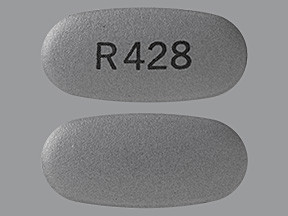LAMOTRIGINE EXTENDED-RELEASE - ORAL
PHONETIC PRONUNCIATION: (lam-OH-try-jeen)
COMMON BRAND NAME(S): Lamictal XR
GENERIC NAME(S): lamotrigine
Uses
USES: This product is used to prevent or control seizures (epilepsy). This drug is not approved for use in children younger than 2 years due to an increased risk of side effects (such as infections).
How to use LAMOTRIGINE EXTENDED-RELEASE - ORAL
HOW TO USE: Read the Medication Guide provided by your pharmacist before you start taking lamotrigine and each time you get a refill. If you have any questions regarding the information, consult your doctor or pharmacist. Take this medication with or without food, usually once daily or as directed by your doctor. Do not crush or chew extended-release tablets. Doing so can release all of the drug at once, increasing the risk of side effects. Also, do not split the tablets unless they have a score line and your doctor or pharmacist tells you to do so. Swallow the whole or split tablet without crushing or chewing. Dosage is based on your medical condition, response to treatment, and use of certain interacting drugs. (See also Drug Interactions section.) If you are being switched from the immediate release form of this medication, your doctor will usually start you on a dose similar to what you were taking with the immediate release form. It is very important to follow your doctor's dosing instructions exactly. The dose must be increased slowly. It may take several weeks or months to reach the best dose for you and to get the full benefit from this medication. Use this medication regularly in order to get the most benefit from it. To help you remember, use it at the same time each day. Do not stop taking this medication without consulting your doctor. Some conditions may become worse when the drug is suddenly stopped. Your dose may need to be gradually decreased. Also, if you have stopped taking this medication, do not restart lamotrigine without consulting your doctor. Tell your doctor if your condition does not improve or if it worsens.
Side Effects
Precautions
Interactions
Overdose
Images

- color
- light blue
- shape
- round
- imprint
- 342, 200
Reviews
Faq for LAMOTRIGINE EXTENDED-RELEASE - ORAL
Lamotrigine extended-release oral medication is used to treat certain types of seizures in people with epilepsy.
Lamotrigine extended-release oral medication works by stabilizing electrical activity in the brain, which helps to prevent seizures.
Common side effects of Lamotrigine extended-release oral medication include dizziness, headache, drowsiness, blurred vision, nausea, and rash. However, not everyone will experience these side effects.
Lamotrigine extended-release oral medication should be taken once daily, usually in the evening. It can be taken with or without food, but it is important to take it consistently at the same time each day.
Yes, it is important to inform your doctor about any allergies, medical conditions, or medications you are currently taking before starting Lamotrigine extended-release oral medication. It may interact with other drugs and cause serious side effects.
It is generally not recommended to use Lamotrigine extended-release oral medication during pregnancy unless the benefits outweigh the risks. It is important to discuss the potential risks with your doctor.
No, Lamotrigine extended-release oral medication is not addictive.
Yes, Lamotrigine extended-release oral medication can be used in children, but the dosage needs to be adjusted based on their weight.
If you miss a dose of Lamotrigine extended-release oral medication, take it as soon as you remember. However, if it is close to the time for your next dose, skip the missed dose and continue with your regular dosing schedule. Do not double the dose to make up for a missed one.
Warning
WARNING: Rarely, serious (sometimes fatal) skin rashes have occurred while taking this medication. These rashes are more common in children than in adults. Rashes may be more likely if you start at too high a dose, if you increase your dose too quickly, or if you take this medication with certain other anti-seizure medications (valproic acid, divalproex). These rashes may occur anytime during use, but most serious rashes have occurred within 2 to 8 weeks of starting lamotrigine. Get medical help right away if you develop any type of skin rash, or if you have other signs of a serious allergic reaction such as hives, fever, swollen lymph nodes, painful sores in the mouth or around the eyes, swelling of the face/tongue/throat, trouble breathing, or liver problems (symptoms include stomach/abdominal pain, nausea/vomiting that continues, dark urine, yellowing eyes/skin). Your doctor will tell you if you should stop taking lamotrigine. Even after you stop taking this, it is still possible for a rash to become life-threatening or cause permanent scars or other problems.
Disclaimer
IMPORTANT: HOW TO USE THIS INFORMATION: This is a summary and does NOT have all possible information about this product. This information does not assure that this product is safe, effective, or appropriate for you. This information is not individual medical advice and does not substitute for the advice of your health care professional. Always ask your health care professional for complete information about this product and your specific health needs.








No Reviews Yet